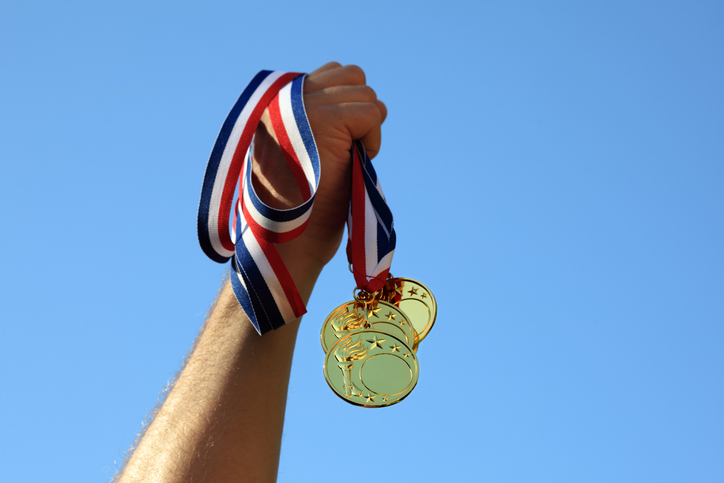What does it take to become an Olympic athlete, are they born with their skill?
With the Paris Olympics approaching we take a look into the makings of these great athletes and what sets them apart from those who don’t quite make it. There will be 15,000 athletes competing this year in Paris.
Is there a pattern to follow to become an Olympic athlete or is it all down to genetics?
Genetics
A study conducted in 2014 in which they surveyed 15 male and 15 female sprinters and the 20 fastest American Men through history found that those who had their biographical data available were fast before any professional training. So, those who become professional athletes have the ability in their genetics to begin with.
When does training begin?
Those who make to the Olympics are often the ones who have put in the most dedicated hours of training into their sport.
Malcom Gladwell, a journalist and author who popularised the theory that it take around 10,000 to become a master at any craft including a sport. So, for athletes this would take the form of completing 10,000 hours of training before taking part in the Olympic competitions.
This is true for many of the athletes.
Michael Phelps, the athlete with the most Olympic medals, with 23 Gold, 3 silver and 2 bronze and was the youngest male swimmer to win. Phelps began swimming competitively at 7 years old and by age 10 held a national record for his age group in the 100 meter butterfly. Phelps was dedicated to his training and would not miss a session even on birthdays and Christmas with an average of 4 hours a day in the pool. This accumulates to well over 10,000 hours before his first Olympics in 2000.
Simone Biles, the well known gymnast also shows the importance of training and dedication as she began when she was 6 years old and had a professional coach at 8. Biles decided to switch to home schooling for secondary school to ensure she could complete 32 hours a week of training. Her parents built a gymnasium close to her home so that the commute time was shortened too. Biles shows us that hours put in to mastering your chosen craft can be seen by the results.
Late starters
The age you begin training as an athlete depends on which sport you are aiming to master, the pattern shows that gymnasts and swimming have an early starting age in order to qualify in their teens.
However, weightlifting, wrestling and canoeing were found to have a late starting age with a average specialising age showing you can begin these sports later on and still make it.
The Nigerian Bobsledding team were late starters with TIME reporting that the three women began training in their early 20s and were able to be at the Olympics when they were in their late 20s.
Smart Training
Michael Phelps has been noted as dedicating his wins to his trainers, coaches and Physiotherapists. For athletes training incredibly hard with long hours it's important to take care of their bodied which they heavily rely on to work for them. Having a Physiotherapist would be vital to reduce injury and keep an athlete running like an athlete.
Importance of resilience
Athletes make it to where they are because of their ability to stay motivated and disciplined no matter what.
In 2020 Kristoffer Henriksen, a sport psychologist found that athletes who committed wholeheartedly to the Olympics and winning are at an increased risk of disappointment, identity foreclosure and high life stress.
For athletes training and committing everything for their Olympic competition, what comes after has often led to high levels of mental health issues as the lead up to the event is over so quickly.
Post-success depression is common in many areas and is not limited to sports. The pressure to remain at the top as well as the high amount of support for a short period of time leads to athlete often finding themselves dropping off the radar and leaving them in the lurch after a period of popularity.
Remaining positive, as cliché as it is has been reported as a key skill that athletes need to master.
Mental health professionals working with Olympic athletes often try to establish the athletes identity outside of their sport. This way they know they are going back to a full life with new goals and priorities outside of the Olympics.












